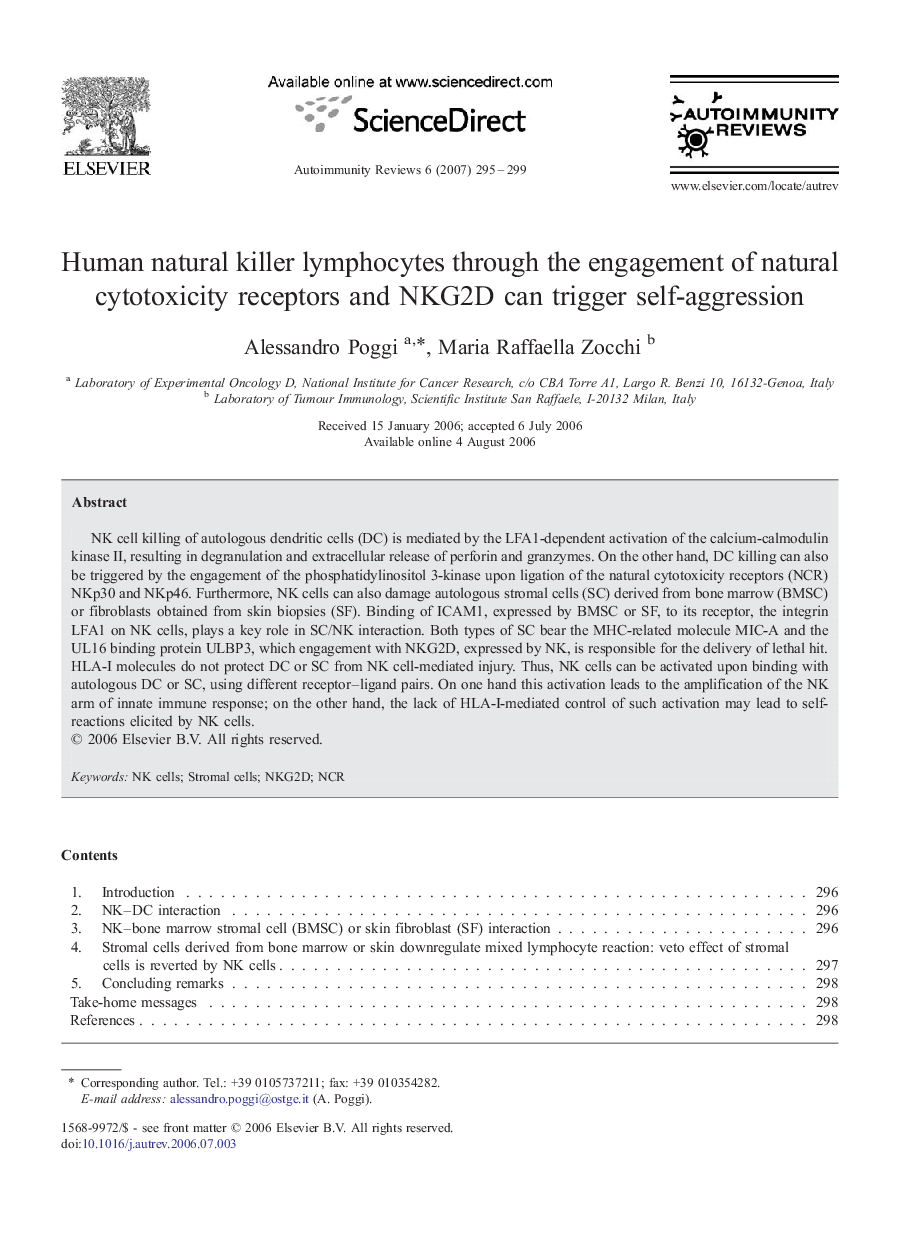| کد مقاله | کد نشریه | سال انتشار | مقاله انگلیسی | نسخه تمام متن |
|---|---|---|---|---|
| 3342668 | 1214301 | 2007 | 5 صفحه PDF | دانلود رایگان |

NK cell killing of autologous dendritic cells (DC) is mediated by the LFA1-dependent activation of the calcium-calmodulin kinase II, resulting in degranulation and extracellular release of perforin and granzymes. On the other hand, DC killing can also be triggered by the engagement of the phosphatidylinositol 3-kinase upon ligation of the natural cytotoxicity receptors (NCR) NKp30 and NKp46. Furthermore, NK cells can also damage autologous stromal cells (SC) derived from bone marrow (BMSC) or fibroblasts obtained from skin biopsies (SF). Binding of ICAM1, expressed by BMSC or SF, to its receptor, the integrin LFA1 on NK cells, plays a key role in SC/NK interaction. Both types of SC bear the MHC-related molecule MIC-A and the UL16 binding protein ULBP3, which engagement with NKG2D, expressed by NK, is responsible for the delivery of lethal hit. HLA-I molecules do not protect DC or SC from NK cell-mediated injury. Thus, NK cells can be activated upon binding with autologous DC or SC, using different receptor–ligand pairs. On one hand this activation leads to the amplification of the NK arm of innate immune response; on the other hand, the lack of HLA-I-mediated control of such activation may lead to self-reactions elicited by NK cells.
Journal: Autoimmunity Reviews - Volume 6, Issue 5, April 2007, Pages 295–299